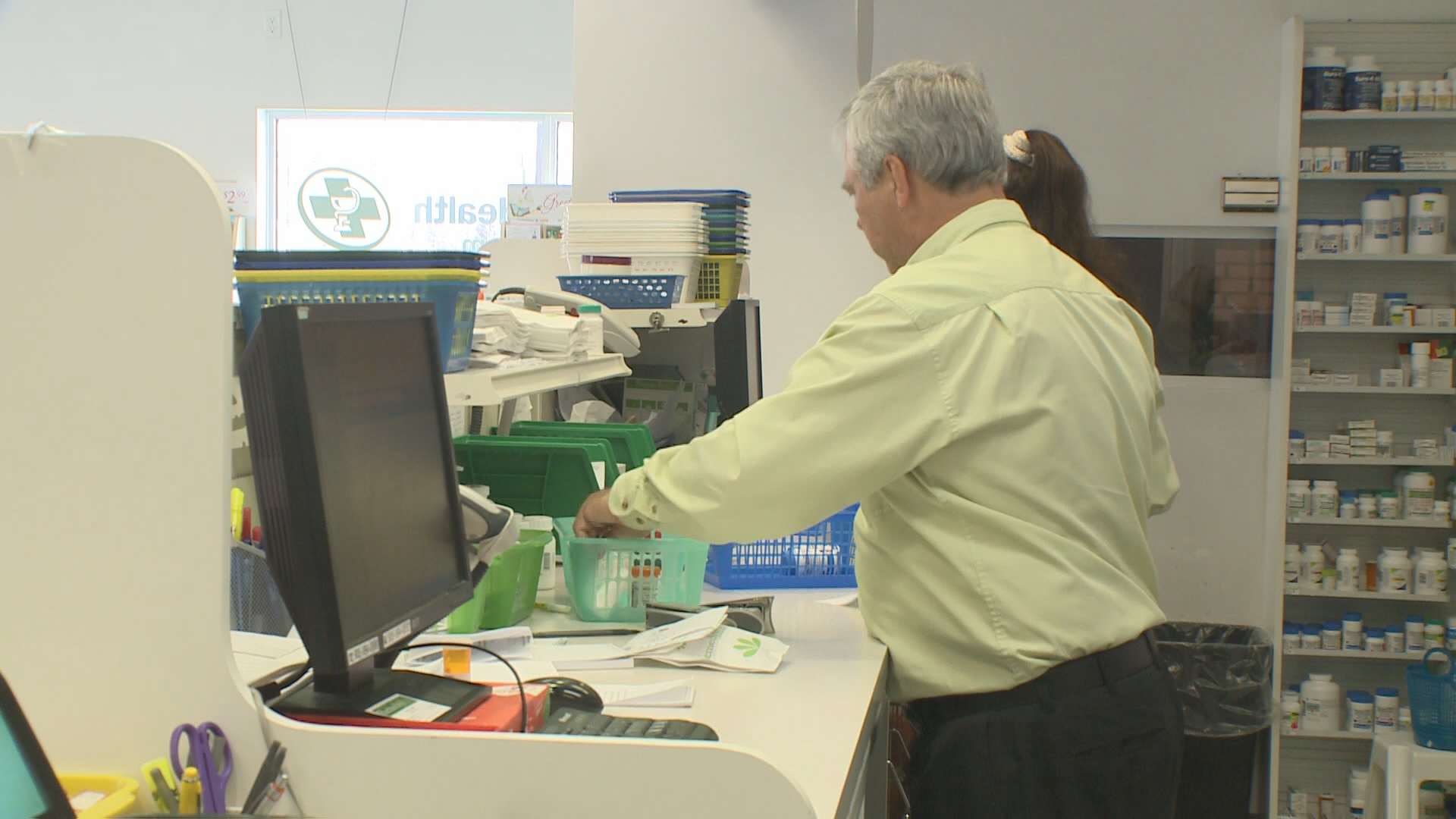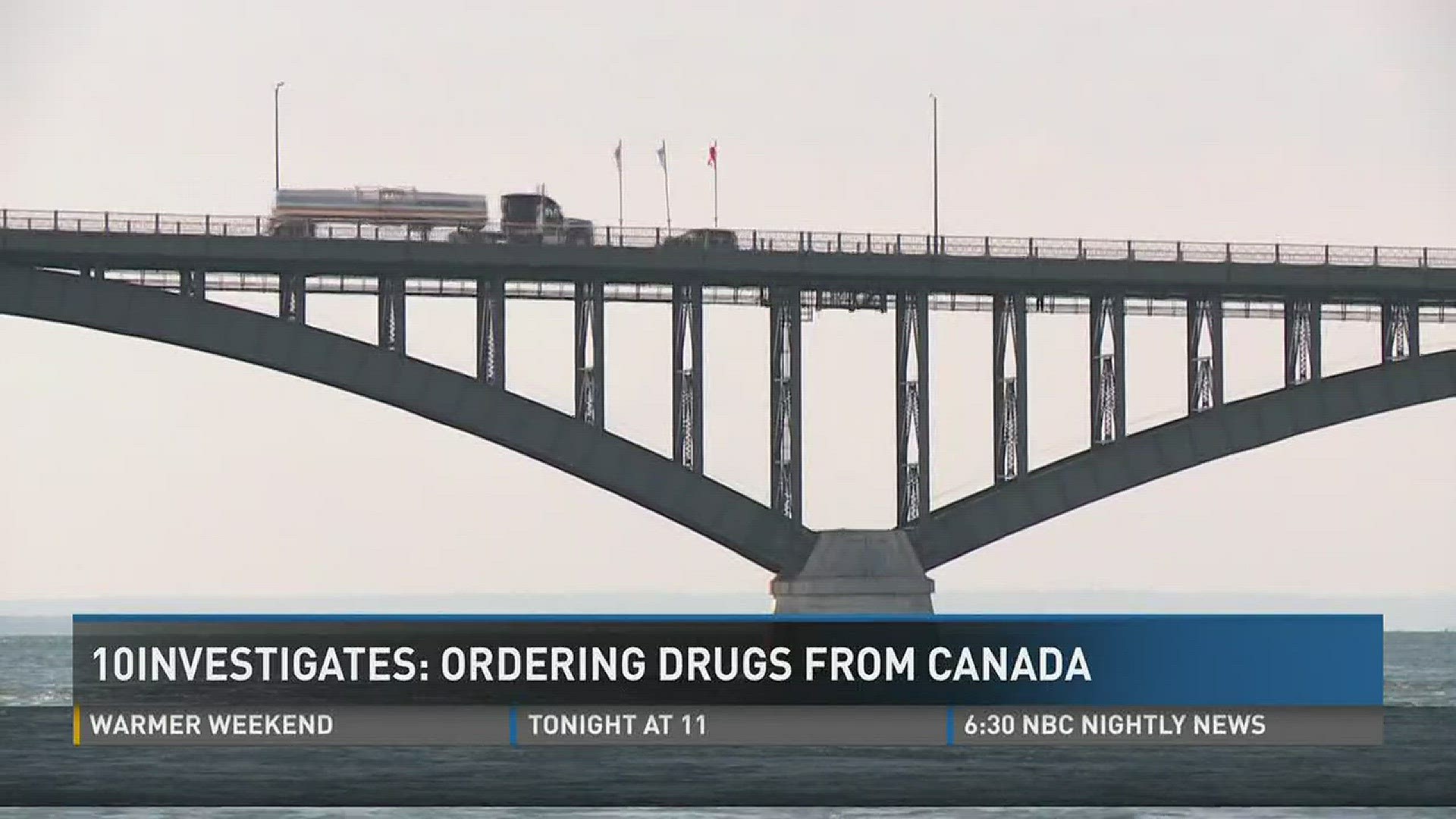Some call it ‘The Canadian Remedy’ – patients looking to save money on prescriptions by taking their business across our Northern border.
There’s no way to know how many try – but a quick Google search returns dozens of mail order pharmacies claiming to be from Canada, many listing drastically cheaper prices than in the U.S.
So 10Investigates set out to find – is it legal, and is it safe?
Gerard Longval has been a pharmacist in Ontario, Canada for more than 30 years, in a town just across the border from Buffalo, NY. He compared the prices for several common medications in his system with prices found across the border.

What he found: staggering price differences. Take the often-prescribed antibiotic Tetracycline – it retails for about $304 in the U.S., but sells for $14.28 in Canada.
Or COPD inhaler Advair Diskus – our reporting found prices ranging from $385 to $436 across Knoxville in February. In Longval’s computer, the same drug lists for only $95.
But here’s the catch: to get those prices, you have to show up at his pharmacy in person.
“What we need is a prescription authorized by an Ontario licensed physician,” said Longval.
As for bringing them back across the border – if you’ve only got a 90-day supply, there’s no issue.
“If they’re purchased in Canada, you have a prescription for them and they’re approved by the Food and Drug Administration, then you can bring it back into this country,” said Aaron Bowker, a press officer with the Buffalo branch of Customs and Border Protection.
But what if you live too far to drive out of the country? Google returns a list of Canadian mail-order pharmacies, but officials have a warning about this online shopping.
“It’s actually a misconception that folks tend to believe that when they purchase something over the internet, everything is legal, but not necessarily,” said Jaime Ruiz, a Los Angeles-based spokesperson for Customs and Border Protection.
“The Federal Food, Drug, and Cosmetic Act prohibits interstate shipment (including importation) of unapproved new drugs,” wrote FDA spokesperson Lyndsay Meyer. “Unapproved new drugs are any drugs, including foreign-made versions of U.S.-approved drugs, which have not been approved by FDA for marketing in the United States.”
“In most circumstances, it is illegal for individuals to import drugs into the U.S. for personal use,” she added.
However, the FDA does list some exceptions:
1. Product is not for treatment of a serious condition and there is no known significant health risk; or
2. The drug is for use for a serious condition for which effective treatment is not available in the U.S. (e.g., prescription drug products), and
- There is no commercialization or promotion of the drug to U.S. residents;
- The drug is considered not to represent an unreasonable risk;
- The individual importing the drug verifies in writing that it is for his or her own use, and provides contact information for the doctor providing treatment or shows the product is for the continuation of treatment begun in a foreign country; and
- Generally, not more than a three-month supply of the drug is imported.
Fake Drug Risk
Ruiz also warned – don’t believe everything you read online.
“Many pharmacies, maybe the front page looks Canadian, but maybe all the product are coming from China or other countries,” said Ruiz. “The internet has created huge challenges for the government, because you don’t really know what’s on the other side.”
He said these medications can’t be guaranteed as safe by the Food and Drug Administration, and the actual chemical inside might not be what the label claims.
“Folks buying prescription medications over the internet, they’re playing Russian roulette every time they click send,” said Ruiz.
“Without FDA approval, there is no reliable way to know whether drug products delivered to consumers in the U.S. claiming to be approved by regulatory authorities in foreign countries have truly been evaluated for safety and effectiveness, or whether they are comparable to products that FDA has approved through its rigorous safety and efficacy review process,” wrote FDA spokesperson Meyer.
Ruiz added that ports of entry across the country are seeing increased numbers of bogus prescriptions coming into the country every year. Many are seized, but they can’t be sure they catch 100%.
So while the prices abroad may look appealing, those savings may come with a risk, unless you’re willing to hit the road yourself, and bring back limited quantities.

